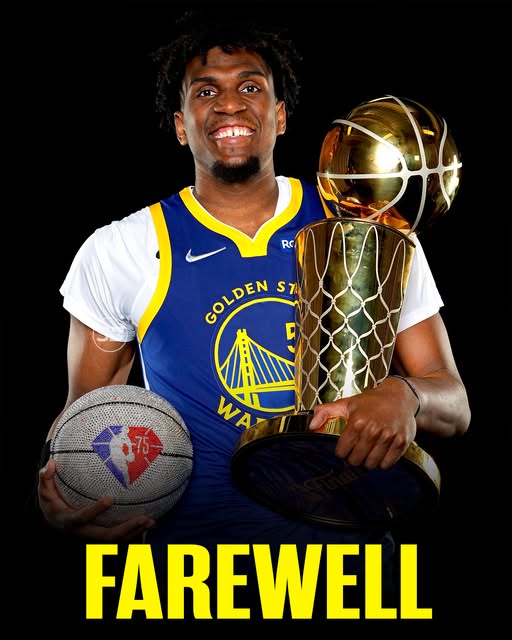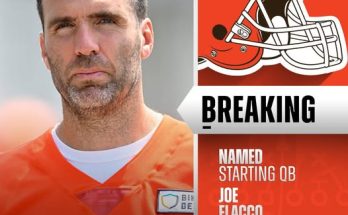Kevon Looney’s move to the New Orleans Pelicans marks one of the most poignant endings and new beginnings in recent NBA history. After a remarkable ten-year run with the Golden State Warriors—replete with intense physical battles, championship banners, and cultural impact—Looney has agreed to a two-year, $16 million contract with New Orleans (sfchronicle.com). This post dives deep into his journey: from humble beginnings in Wisconsin to the heart of the Bay Area dynasty, and now a fresh chapter in the Crescent City.
From day one, Looney’s NBA path was defined by adversity and evolution. A standout at UCLA during his lone collegiate season, he was regarded for his versatile inside-out game, particularly his rebounding and mobility . Drafted 30th overall in 2015 by Golden State, questions hovered over whether the athletic, yet injury-prone, freshman could withstand the demands of the NBA (en.wikipedia.org).
The early chapters of Looney’s pro career saw him battling through hip surgeries and recovery. But those challenges became the crucible through which he forged the work ethic and mental toughness that Steve Kerr and the Warriors would come to value. Once deemed a “wiggly power forward,” Looney had to reinvent himself (sfchronicle.com). He embraced a gritty, blue-collar role—screening tirelessly, diving for offensive boards, guarding bigger centers, and anchoring rebounding efforts. His metamorphosis culminated in becoming one of the league’s most reliable “connective” big men .
By the time the 2021–22 season rolled around, Looney’s durability became his calling card. He played in every single game across multiple seasons and at one point recorded 290 consecutive appearances . That same season, a 22‑rebound explosion in a pivotal playoff game highlighted his value (goldenstateofmind.com). Finals runs? Three under his belt—2017 (inactive), 2018, and 2022. He was rightfully a three-time NBA champion (nbcsportsbayarea.com). Looney’s 2022 series, where he averaged 14.1 rebounds per 36 minutes, reaffirmed his position as a championship-caliber glue guy (nbcsportsbayarea.com).
Just as importantly, Looney became a cultural keystone. Coach Steve Kerr repeatedly referred to him as the team’s “moral compass” (nbcsportsbayarea.com). His locker-room presence, quiet steady leadership, and embodiment of “doing the little things” made him beloved by teammates and fans alike . Off the court, Looney’s journey from reconstructing his body to contributing in high-leverage minutes illustrated a level of professionalism that went beyond stats.
Speaking of stats, over his 599 regular-season games with Golden State, Looney maintained averages of 5.0 points, 5.7 rebounds, and 1.6 assists in around 17 minutes per game (sfchronicle.com). In the playoffs, he boosted those numbers: 5.3 points, 6.3 rebounds, and 1.5 assists across 89 appearances (sfchronicle.com). These numbers may not turn heads, but context matters: he repeatedly delivered when his team needed consistency in rotation, defense, and heart.
Despite Looney’s desire to remain in Golden State, the financial strain on the Warriors played a decisive role. With only about $17 million in expiring contracts—including Looney’s and Gary Payton II’s cash—Golden State was already pushing against the luxury tax apron. They had just six roster spots open, and the front office had eyes on restricted free agent Jonathan Kuminga and veteran center Al Horford (reddit.com). Allocating $8 million per year to Looney simply wasn’t feasible within those constraints—even if it meant losing more than just a rotation player .
The moment was strikingly emotional: team insiders referred to Looney as a “legend” and a “sensei” . Players like Moses Moody marveled at his transformation and reverence for the game: “It’s been really cool for me to see somebody like him be able to get to the NBA and find a different role […] And I respect him so much” (sfchronicle.com). Looney admitted in interviews that each offseason he wondered if it would be his last, yet he frequently found a way back .
It’s hard to understate what’s being lost in Golden State: a performer whose off-ball screening was top five per 100 possessions (espn.com); a defensive cog who quietly guarded the paint; and one of the few remaining institutional cornerstones alongside Curry and Green . With Looney gone, the Warriors now look to fill that void—possibly targeting Al Horford—while leaning on younger centers like Quinten Post and Trayce Jackson‑Davis (sfstandard.com).
Meanwhile, Looney enters a new phase with New Orleans. He reunites with talent familiar to him: Jordan Poole, his former Warrior teammate and fellow Milwaukee native (sfchronicle.com), and coach Willie Green, who spent several years as a Warriors assistant (2016–19) (nbcsportsbayarea.com). With the Pelicans, Looney is expected to bring that rare combination of veteran wisdom, professional maturity, and team-first mentality. He’ll no longer be the undisputed starter—New Orleans has younger frontcourt pieces—but he’ll carry a role that goes beyond numbers.
At 29, Looney still has playing years ahead. The $16 million deal ($8 million annual average) boosts his earning power while letting him showcase his value in a new environment . And let’s not underplay the reunion with former teammates and familiar faces; that chemistry could translate into a deeper sense of purpose in a team building around young stars.
Beyond the X’s and O’s, New Orleans benefits from what Looney brings off the court. The franchise is in the process of defining its identity—and having a three-time champion, a man known for integrity and to-the-moment leadership, helps. It’s not just about rebounding or defense; it’s about raising cultural standards. Looney has spoken frequently of the emotional connection he felt in Golden State—“to have my name on banners” (goldenstateofmind.com, sfchronicle.com)—and he’s now in a position to help craft similar legacies elsewhere.
In Pelicans practice facilities, expect him to be the steadying voice. Around flashier teammates, the connective tissue. In late-game situations, the veteran who’s been there before. That kind of leadership—earned over a decade—cannot be replicated in free agency or trades. And yet, financial realities and roster logjams sometimes carry more weight than loyalty or legacy—just ask Golden State, which spent big elsewhere, or ask Looney, who transitions with class.
As for Dub Nation, it’s a bittersweet moment. The cheers he once received at Chase Center will fade, replaced by applause in Smoothie King Center. Moments like Looney’s rare corner three in 2021, celebrated by an on-bench eruption, and gritty playoff rebounds will now be highlights of the past . Yet his influence on championship DNA remains: every screen that created Curry or Thompson shot, every hustle rebound that extended possessions—those are the building blocks of dynasties. And dynasties are not easily undone.
In the end, Looney’s departure is more than a transaction. It’s the final turn of a long, winding chapter. From “probably the last time here,” he’s far from forgotten . It’s a moving, dramatic, decade-long tale of perseverance, transformation, and understated excellence.
Now, Pelicans fans have reason to believe. They’re gaining a champion. They’re gaining a role model. They’re gaining an emotional anchor in Looney—a man who defines “professional basketball player” not by buzz or box scores, but by consistent effort, character, and readiness. The price tag—$8 million per season—is modest in today’s NBA context and the return—cultural enrichment and basketball savvy—is underrated.
Golden State may be losing a starter, but the bigger loss is the mentor who built the team from within. He leaves a vacuum, symbolically and structurally. That void demands not just statistical replacements, but those with similar DNA. Meanwhile, New Orleans is gaining exactly what it needs as it looks to solidify upward momentum: veteran calm, playoff poise, and someone who truly understands winning.
Whatever the next two years in New Orleans hold, one thing is sure: the Kevon Looney era in Golden State—a key component of three titles—is etched into history. And as he laces up again in a different uniform, the narrative continues: from Milwaukee kid, UCLA standout, Bay Area champion, to now Pelicans mainstay. And for those who value growth, grit, and genuine leadership, this isn’t just a free-agent signing—it’s a perfect fit.



